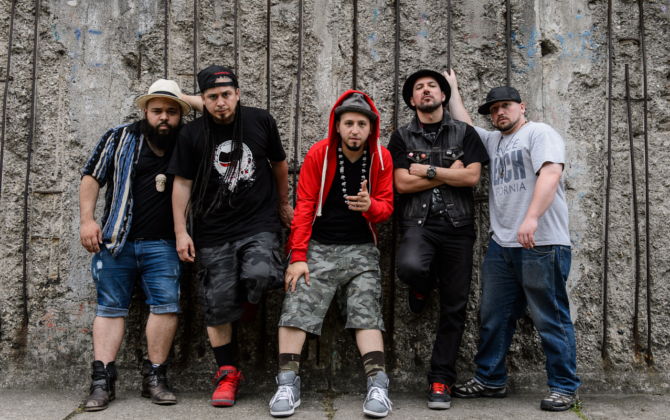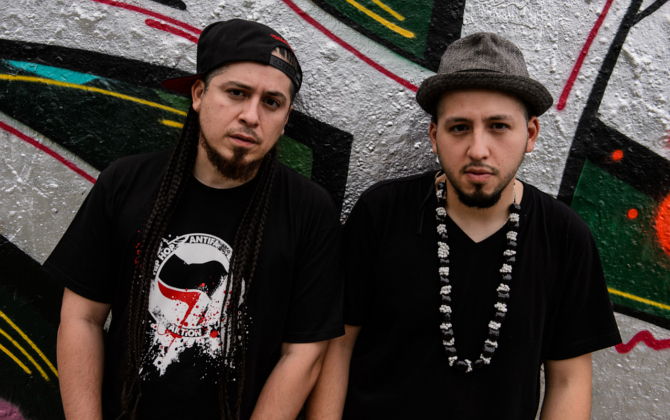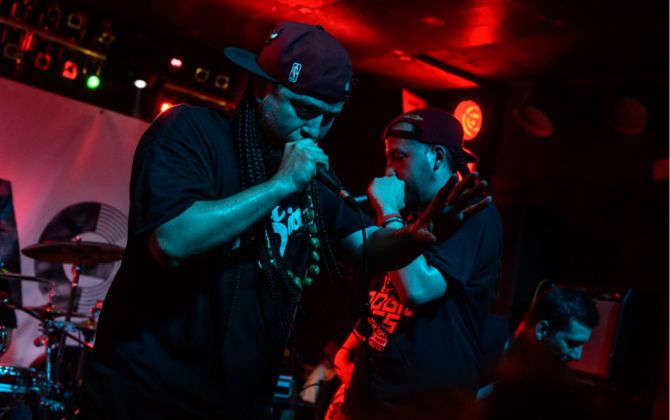HIP HOP IS THE SOUNDTRACK FOR IMMIGRANTS

2LEMMA.de: Rebel Diaz is a pun for rebellion. What do you rebel against?
G1: That name speaks to the legacy of rebelliousness and resistance of our family history: our parents are political exiles from Chile, who fled the country during the dictatorship that occurred there. Also, the name refers to the the historical civil rights movement in the USA. We also see that hip hop as a culture is a direct descendent of those struggles. The music that we do is a continuation of this legacy.
RodStarz: But it’s also a bilingual name. We think that hip hop is an immigrant culture. Without immigration, hip hop would not exist.

Should hip hop be politicized?
RodStarz: Hip hop is a culture that comes from nothing. When you look at the south Bronx, why stress that it’s an immigrant culture. Here in Germany you see a lot of immigrants, I just came from Greece and I saw a lot of immigrants here and in France too. Anywhere you go in the world, hip hop is the soundtrack of poor people and immigrants. So for us, the fact that hip hop is still present is a political statement itself. And I’m talking about hip hop, not the rap music industry.
Do you use hip hop as your weapon?
RodStarz: We don’t make lyrics about poor people, we are poor people saving ourselves through lyrics and that is the key. Chuck D from Public Enemy once said, that hip hop is the CNN of the streets. We come from the the poorest congressional district in the United States, the Bronx, the birthplace of hip hop and we talk about stop and frisk and police murdering black and latino people, cutbacks on education, lack of excess to proper housing and health care. These are conditions that our community lives in every day. Whenever you have a culture that comes from conditions of oppression, 99% of the stories that come out of it are about surviving that oppression and resisting it. But it is not shown in mainstream hip hop. The Bronx hasn’t changed.
Why do you start your fight locally with a starting point in the south Bronx?
RodStarz: My local struggle is global. What happens in the Bronx is a local representation of what has happened on a global scale.
G1: There are folks with this messiah’s complex: we are going to save the hood but it can’t save itself. Once you realize the ills of the world with all this big capitalism that we talked about earlier. The reason that our work is really focussed on the local is because everything, which is global, we think has to start locally. We believe in the idea of starting small. Even with hip hop now it is no longer as it used to be. These big budgets aren’t there. We have the technology that has made the world smaller, whether it is the internet or the social media, where you can create music as an independent artist and reach a lot of people. We don’t have the help from the state or philanthropy. We believe in the power of our community.

You support undocumented immigrants. Why?
RodStarz: We believe that no human being are illegal. Borders have been opened for trade but closed for people that are following these ressources. We see the attacks on immigrants in the US under Obama: there has been more than 2 mio deportations. Kids born in the US have been separated from their parents and are pretty much orphans. And we see this trend in Europe, too. And also the parallel rise of neo fascist ideology, that uses immigrants as a scapegoat for the economic problems that we’re facing.
G1: Without immigration, hip hop doesn’t exist. And so we see it as our duty to defend immigrant rights.